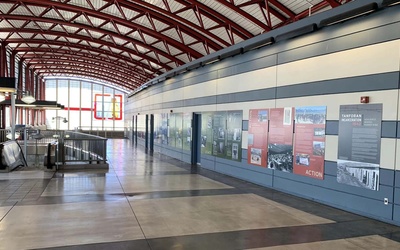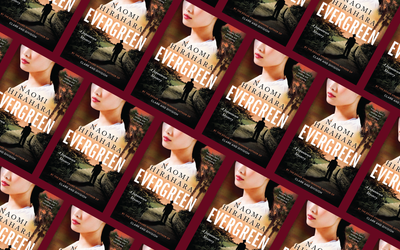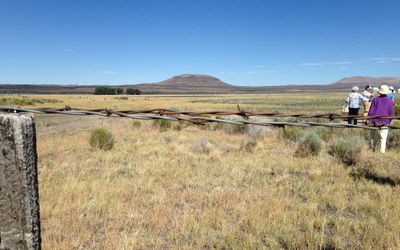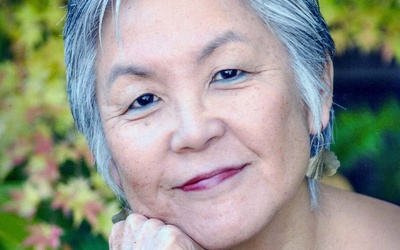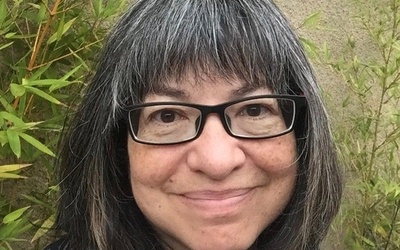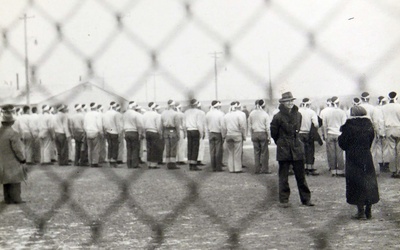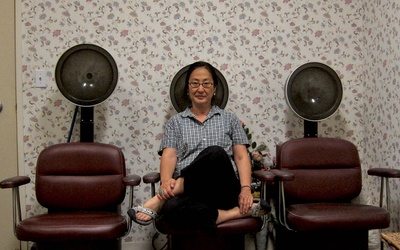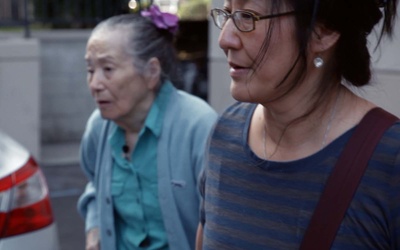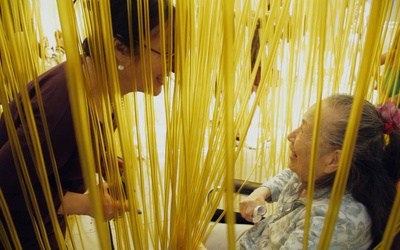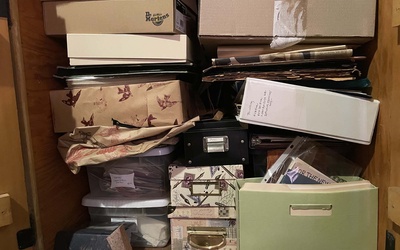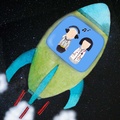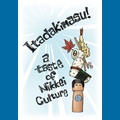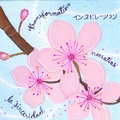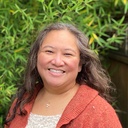
Tamiko Nimura
@tnimuraTamiko Nimura es una escritora sansei/pinay, originaria del norte de California y que actualmente vive en el Noroeste del Pacífico. Sus escritos han aparecido o aparecerán en The San Francisco Chronicle, Kartika Review, The Seattle Star, Seattlest.com, The International Examiner (Seattle), y el Rafu Shimpo. Ella bloguea en Kikugirl.net, y está trabajando en un proyecto de libro que corresponde al manuscrito no publicado de su padre sobre su encarcelamiento en el campo Tule Lake durante la Segunda Guerra Mundial.
Última actualización en Julio de 2012
Historias de Este Autor
¿Cómo recordamos la historia japonesa americana? La perspectiva de un descendiente
4 de abril de 2024 • Tamiko Nimura
Lo siguiente es una adaptación de una charla que di en la Iglesia de Plymouth en Seattle en febrero de 2024. Buenas tardes. Es un honor para mí estar aquí con todos ustedes. Soy una escritora asiático-americana de Tacoma, mitad filipina americana, mitad japonesa americana. Tengo tantas emociones al estar con ustedes aquí hoy, en este día antes del Día del Recuerdo nacional japonés-estadounidense. Esta conmemoración comenzó en Seattle el fin de semana de Acción de Gracias de 1978, cuando …
El misterio meticulosamente investigado de Naomi Hirahara sobre la América japonesa de mediados de siglo de posguerra
14 de marzo de 2024 • Tamiko Nimura
Hay algo inquietante en la última novela de Naomi Hirahara, Evergreen — una secuela muy esperada de su novela, Clark and Division. Después del encarcelamiento en Manzanar durante la guerra y luego del reasentamiento en Chicago, Aki Ito, ahora Nakasone, y su familia regresaron al sur de California y muchas cosas han cambiado. La obsesión se presenta de varias formas: como la voz de Rose, la fallecida hermana mayor de Aki, pidiendo no ser olvidada; como el trastorno de estrés postraumático del marido …
Por qué es importante el lenguaje que utilizamos para describir el encarcelamiento de JA durante la Segunda Guerra Mundial
23 de febrero de 2024 • Tamiko Nimura
Por las ventanas delanteras de nuestro autobús, podíamos ver acres de pastos secados al sol durante un verano caluroso y árido en el norte de California. A ambos lados de la carretera había vallas de alambre de púas, como las que muchos de nuestros familiares pasaron años detrás, rodeados de guardias armados y torres de vigilancia, viviendo en hacinados barracones de papel alquitranado con poca o ninguna privacidad. “¿Cuántos de ustedes han estado aquí antes o estuvieron aquí durante la …
“El oro que cura y transforma”: una conversación con el Dr. Satsuki Ina
7 de febrero de 2024 • Tamiko Nimura
Es un honor increíble para mí hablar con el Dr. Satsuki Ina. Ina es activista sansei, terapeuta, sanadora comunitaria y ahora autora de memorias en The Poet and the Silk Girl: A Memoir of Love, Prisonment and Protest (Heyday, marzo de 2024). El libro es una memoria familiar que utiliza varios archivos y documentos de sus padres durante la Segunda Guerra Mundial mientras navegaban por la histeria, el encarcelamiento, el racismo y la resistencia en tiempos de guerra. Fue generosa …
Crecer como nikkei como adoptado: una conversación con la autora Susan Ito
13 de noviembre de 2023 • Tamiko Nimura
“Conocí” a Susan Ito en línea hace casi una década en un sitio de redes sociales, donde nos unimos por ser escritores y blogueros japoneses-estadounidenses. La amistad en línea se profundizó con el tiempo. Descubrí que incluso conoció a mi tío Hiroshi Kashiwagi en una peregrinación al lago Tule. Y finalmente nos conocimos en persona hace un par de años, mientras compartíamos galletas y manualidades, con un amigo en común. Me alegro mucho de que Susan cuente su historia con …
Un irlandés luchador : una conversación con la cineasta Sharon Yamato
17 de octubre de 2023 • Tamiko Nimura
Wayne Mortimer Collins es un nombre importante para mi familia. Conocí por primera vez a este abogado heroico, atrevido y franco hace casi veinte años mientras editaba el primer libro de mi tío Hiroshi Kashiwagi, Swimming in the American (2005). Me sorprendió ver el libro dedicado a Collins y aprendí un poco sobre él mientras leía sobre la lucha de mi tío por recuperar su ciudadanía estadounidense después de renunciar a ella bajo una intensa presión por parte del gobierno …
Sabiduría enloquecida: una conversación con el cineasta Rea Tajiri - Parte 3
10 de septiembre de 2023 • Tamiko Nimura
Leer Parte 2 >> TN: ¿Crees que haces arte como una forma de llenar esos vacíos o de hablar de estos silencios que se crean por la falta de estos artefactos o reliquias? RT: Sí, probablemente eso, y ciertamente mi padre tenía muchas historias que compartiría. Y, sinceramente, algunos de ellos realmente decían "¿qué?" Probablemente era demasiado joven para manejar algunos de estos, pero dejaron una huella muy intensa en mí. Así que creo que parte de esto es simplemente …
Sabiduría enloquecida: una conversación con el cineasta Rea Tajiri - Parte 2
3 de septiembre de 2023 • Tamiko Nimura
Leer Parte 1 >> TN: He estado empezando a pensar en lo que es escribir memorias y realmente he sentido con mucha fuerza que tú [el escritor/narrador] eres el portal a algo más grande, pero al menos tienes que conseguir tu audiencia. , en su espacio, en su puerta antes de que lleguen a estas cosas más importantes, pero cuanto mejor pueda preparar el portal para su audiencia, mejor será la conexión y mejor será la relación. En otra entrevista …
Sabiduría enloquecida: una conversación con el cineasta Rea Tajiri - Parte 1
27 de agosto de 2023 • Tamiko Nimura
En el documental Wisdom Gone Wild de Rea Tajiri, una anciana nisei está sentada afuera en una silla de ruedas. Una instalación de serpentinas de color amarillo dorado ondea a su alrededor, mientras se le unen niños corriendo y jugando en el espacio. La mujer se ríe encantada, mientras las serpentinas y los niños cambian constantemente la forma en que ella ve el mundo y cómo la ve. La anciana tiene demencia y es la madre de Tajiri. La película …
Notas sobre el acaparamiento
7 de junio de 2023 • Tamiko Nimura
Mi mamá me cuenta que cuando mi tía nisei mayor murió en 2016, había muchas cajas en el cobertizo al lado de su casa. Cajas de frutas, para ser exactos. Cartón ondulado blanco, aislante. Solapas entrelazadas en la parte superior: suficientes para permitir que el aire circule sobre y alrededor de las peras Bartlett, las uvas Concord y los melocotones de piedra. Algo de liberación y algo de alivio, un placer cerrar las cajas mientras las solapas se bloqueaban en …

